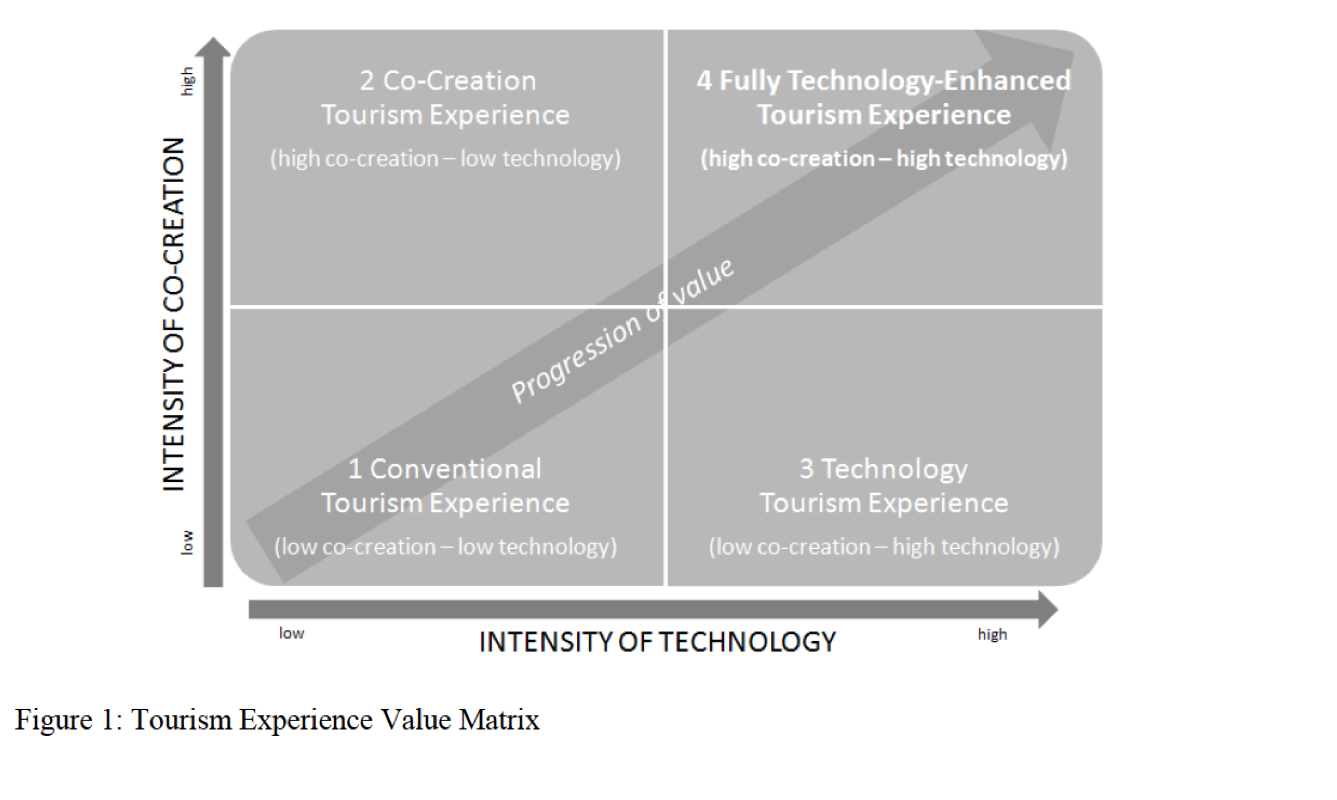The selling of experiences has become increasing important in the travel and tourism sector. With consumer empowerment and digital technology surrounding all our life domains, contemporary consumers want more than just buy into experiences.
They want to take part and co-create experiences.
So what happens if we combine our efforts to involve customers and co-create with them, and use digital technology to support our activities? We create more meaningful experiences, create more value and differentiate ourselves from the competition.
Let’s take a look on how this can be done.
How can we create compelling tourism experiences?
When travelling, people seek experiences that are highly emotional significant, and different from everyday life. They seek experiences that are extraordinary. Digital technologies play an increasingly important role in unlocking the next level of experiences, as tourism can be experienced not only on-site, but before and after travel.
Nowadays we encounter a range of social and mobile technologies, e.g. websites, mobile smartphones, social media, portable city guides, travel guides, virtual life environments or enhanced hotel rooms. The pre-travel and post-travel stages (before and after), are particularly socially intense phases that offer opportunities for business, tourists and others tourists to interact. Tourism experiences are not lived alone, but interactively co-constructed by a connected social network of tourism providers, friends, followers and other tourists online.
This leads us to a new form of experience, which is a) co-created, and b) technology mediated, offering ways to enhance the experience and maximize the value proposition.
Tourism Experience Value Matrix
The following conceptual model, called ‘Tourism Experience Value Matrix’ shows the increasing intensity of co-creation and technology, and its effect on the tourism experience.
It results in four main types of experiences:
- conventional tourism experience
- Co-creation tourism experience
- Technology tourism experience and,
- Fully technology-enhanced tourism experience
Conventional tourism experience: mainly passive, experiences and value are pre-staged and delivered, the involvement and participation of the customer remains low; higher value proposition than products and services, while not taking full potential;
Co-creation tourism experience: high customer involvement and actively co-created by the tourist consumer with the business, higher level of value compared to staged experiences, interactions and engagement in the real world and offline spaces, while technology potential is missed;
Technology tourism experience: high level of technology use, largely company-centric, low customer involvement, classic Web 1.0 systems, co-creation potential is missed for interactive engagement;
Fully technology-enhanced tourism experience: takes advantage of co-creation and digital technology; experiences are enhanced as they are interactive, participatory and extended from the offline to the online space; experience with highest value proposition as a full experience before, during and after travel is unlocked; most contemporary type of experience;

Tourism Experience Value Matrix (Neuhofer et al., 2013)
Conclusions and outlook
The four-quadrant Tourism Experience Value Matrix is useful in that it offers a tool for tourism companies to analyse a) what experience they currently offer and b) how to adapt the experience towards a higher level of co-creation and technology use. The constant progression of value is critical for innovation and competitiveness.
Technology-enhanced experiences are the new standard of experience creation, and businesses need to evaluate their offer and see how a truly meaningful and participatory experience can be created offline and online.
FOLLOW UP READING – ACCESS AND DOWNLOAD THE STUDY FOR FREE:
Neuhofer, B., Buhalis, D. and Ladkin, A. (2013) Experiences, Co-creation and Technology: A conceptual approach to enhance tourism experiences. Proceedings of Cauthe 2013, pp. 546-555.
ResearchSimplified by Dr. Barbara Neuhofer: Latest studies on Experience Design, Co-Creation and Digital Technology.
